
Parasitologists United Journal
Scope & Guideline
Elevating Knowledge in the Realm of Parasitology
Introduction
Aims and Scopes
- Investigative Parasitology:
The journal focuses on the detailed study of various parasites affecting humans and animals, including their biology, life cycles, and interactions with hosts. - Therapeutic Strategies:
A significant emphasis is placed on exploring novel therapeutic approaches and drug development for parasitic diseases, including the evaluation of natural products and nanoparticles. - Molecular and Genetic Analysis:
Research on the genetic diversity and molecular characterization of parasites is a core area, aiding in understanding their epidemiology and developing targeted interventions. - Immunological and Histopathological Studies:
The journal publishes studies examining host immune responses and the histopathological effects of parasitic infections, contributing to the understanding of disease mechanisms. - Ecological and Environmental Impact:
Research addressing the ecological aspects of parasitism, including the role of environmental factors in parasite transmission and survival, is included in the scope. - Educational Innovations in Parasitology:
The journal also highlights innovative educational strategies and methodologies in teaching parasitology, reflecting its commitment to fostering knowledge dissemination.
Trending and Emerging
- Nanotechnology in Parasitology:
The use of nanoparticles and nanocarriers for drug delivery and treatment of parasitic infections is increasingly prominent, indicating a growing interest in innovative therapeutic approaches. - Host-Pathogen Interactions:
Research exploring the intricate interactions between parasites and their hosts, particularly at the molecular and immunological levels, has gained significant attention. - Natural Products and Alternative Therapies:
There is a rising trend in evaluating the therapeutic potential of natural products, such as plant extracts and essential oils, as alternatives to conventional antiparasitic drugs. - Artificial Intelligence Applications:
The integration of artificial intelligence in diagnosing and managing parasitic diseases is becoming a focal point, reflecting the broader trend of digital health innovations. - Omics Approaches in Parasitology:
The application of omics technologies (genomics, proteomics, metabolomics) to understand parasite biology and develop targeted therapies is emerging as a crucial area of research. - Co-infections and Multi-parasitism:
Studies investigating the impact of co-infections with multiple parasites, particularly in immunocompromised populations, are increasingly relevant, highlighting the complexity of parasitic diseases.
Declining or Waning
- Traditional Diagnostic Techniques:
There has been a noticeable decrease in studies focusing on conventional diagnostic methods for parasitic infections, as newer technologies and molecular techniques gain prominence. - Animal Parasitology:
Research specifically centered on animal parasitology appears to be waning, with a shift towards human health and the implications of zoonotic parasites. - Historical Perspectives on Parasitism:
Papers discussing historical or classical perspectives on parasitic diseases have become less frequent, indicating a move towards contemporary issues and advanced research methodologies. - Public Health Aspects of Parasitic Diseases:
While public health remains a relevant area, the specific focus on the epidemiological studies related to parasitic diseases seems to be declining, possibly due to a shift towards molecular and therapeutic studies.
Similar Journals
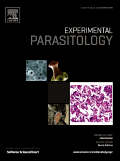
EXPERIMENTAL PARASITOLOGY
Connecting Researchers to the Latest in Parasitology AdvancesEXPERIMENTAL PARASITOLOGY, published by Academic Press Inc Elsevier Science, is a prominent journal in the domains of immunology, infectious diseases, and parasitology, with roots extending back to 1951. This journal, bearing the ISSN 0014-4894 and E-ISSN 1090-2449, serves as a critical conduit for sharing advancements in the understanding of parasite biology, host-parasite interactions, and the immunological responses elicited by parasitic infections. Although it currently operates under a subscription model without open access options, its rigorous scholarly content is vital for researchers and practitioners alike looking to stay informed on the latest developments and applications in the field. With a recent categorization as Q3 in key scientific categories, including Infectious Diseases and Parasitology, and a Scopus ranking solidifying its relevance, EXPERIMENTAL PARASITOLOGY is an essential resource for those committed to advancing knowledge and solutions to parasitic diseases.

SYSTEMATIC PARASITOLOGY
Connecting global researchers in the study of parasitology.SYSTEMATIC PARASITOLOGY, a premier academic journal published by Springer, serves as a vital resource in the field of parasitology. Since its inception in 1979, this journal has committed itself to advancing the understanding of parasitic organisms and their interactions with hosts, thus playing a significant role in both basic and applied research. With an impactful contribution to the scientific community—evidenced by its Scopus ranking and its position in the third quartile (Q3) within the Parasitology category—the journal provides a platform for high-quality, peer-reviewed research that spans a variety of topics from molecular biology to ecology. Although not currently open access, SYSTEMATIC PARASITOLOGY remains essential for researchers, professionals, and students who seek to stay at the forefront of parasitological studies and contribute to ongoing developments in the domain. Published in the Netherlands, it continues to attract a diverse international readership, fostering a collaborative scientific environment.
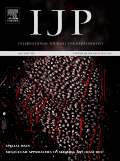
INTERNATIONAL JOURNAL FOR PARASITOLOGY
Connecting Researchers to the Heart of ParasitologyInternational Journal for Parasitology, published by Elsevier Sci Ltd, stands as a premier platform for disseminating groundbreaking research in the fields of parasitology and infectious diseases. With an impressive impact factor represented by its Q1 quartile rankings in both Infectious Diseases and Parasitology for 2023, this journal commands significant attention within the scientific community. Operating since 1971, it has profoundly contributed to the understanding of parasitic infections and their implications for human health, occupying a distinguished position ranked #7 out of 79 in Parasitology and #64 out of 344 in Infectious Diseases according to Scopus metrics. Although the journal currently does not offer open access options, it ensures rigorous peer review and unparalleled academic integrity, providing researchers, professionals, and students with critical insights necessary for advancing knowledge and fostering innovations in parasitology. Together with its rich historical foundation and commitment to excellence, the journal is indispensable for anyone delving into the complexities of parasites and their impact on both host and ecosystem.

ACTA TROPICA
Fostering Innovation in Veterinary and Parasitological StudiesACTA TROPICA is a prestigious academic journal published by Elsevier, dedicated to advancing knowledge in the fields of Infectious Diseases, Insect Science, Parasitology, and Veterinary sciences. With an ISSN of 0001-706X and an E-ISSN of 1873-6254, it has established itself as a vital resource since its inception in 1945. The journal is recognized for its significant impact within the scientific community, boasting a Q2 ranking in Infectious Diseases and Parasitology, and a Q1 ranking in both Insect Science and Veterinary (miscellaneous) categories as of 2023. Specifically, it ranks #19 in Scopus for Parasitology and #129 for Infectious Diseases, underscoring its high visibility and relevance in these vital research arenas. ACTA TROPICA is a non-open access journal, ensuring high-quality peer-reviewed content that complements ongoing research and professional practices among scientists, researchers, and students. Explore groundbreaking studies and contribute to the ongoing dialogue within your field by selecting ACTA TROPICA as your next publication destination.

Parasite
Fostering innovation in parasitology through open-access research.Parasite is a distinguished open-access journal published by EDP Sciences S A based in France, specializing in the multifaceted field of parasitology and related disciplines. Since its inception in 1994, it has played a pivotal role in advancing research in Agricultural and Biological Sciences, Animal Science and Zoology, Infectious Diseases, Insect Science, and Veterinary Sciences, earning a prominent place in the academic community with its 2023 rankings placing it in the Q1 category for several key areas. With an impact factor reflective of its quality and engagement, the journal fosters a collaborative environment for researchers, professionals, and students to disseminate and access high-quality studies and reviews. Operating under an open-access policy since 2013, Parasite ensures that cutting-edge research is accessible to a global audience, thereby promoting knowledge sharing and innovation in the field. For more information, please visit the journal's homepage and explore its extensive repository of articles that contribute to the understanding of parasitic interactions and their implications in health and agriculture.
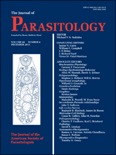
JOURNAL OF PARASITOLOGY
Pioneering Insights into Parasitic Diseases and EcologyJOURNAL OF PARASITOLOGY is a leading scholarly publication dedicated to the field of parasitology, published by ALLEN PRESS INC. With an impactful history spanning from 1945 to 2024, this journal serves as a vital resource for researchers, professionals, and students interested in the complex interactions between parasites and their hosts. Operating from its base in the United States, this journal holds a Scopus quartile ranking of Q3 in Ecology, Evolution, Behavior and Systematics, Medicine (Miscellaneous), and Parasitology, providing a solid reflection of its impact within these categories. While currently not offering Open Access, the JOURNAL OF PARASITOLOGY continues to encourage the dissemination of pivotal research findings that contribute to our understanding of parasitic diseases and ecological systems, positioning it as an indispensable tool for knowledge advancement in the life sciences.
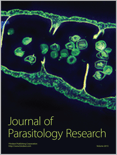
Journal of Parasitology Research
Catalyzing Change in Parasitology and EpidemiologyJournal of Parasitology Research, published by HINDAWI LTD, is a pivotal open-access journal that has been disseminating groundbreaking research in the field of parasitology since 2009. With an ISSN of 2090-0023 and an E-ISSN of 2090-0031, this journal strives to provide researchers, professionals, and students with accessible and high-impact studies that advance understanding of parasitic diseases and their epidemiology. The journal currently holds a Q3 ranking in Infectious Diseases and a Q2 ranking in Parasitology, indicating its significant contribution to the academic community. Furthermore, with a Scopus ranking placing it at #39 in Parasitology and #186 in Infectious Diseases, it plays an essential role in shaping research directions in these fields. As an open-access journal, Journal of Parasitology Research enhances the visibility and accessibility of published works, ensuring crucial findings reach a global audience. With a focus on innovative research, the journal welcomes submissions that explore both theoretical frameworks and practical applications in parasitology, making it an invaluable resource for those dedicated to combating parasitic infections.
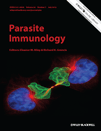
PARASITE IMMUNOLOGY
Advancing the Frontiers of Host-Parasite Research.PARASITE IMMUNOLOGY, published by Wiley, is a leading journal in the field of immunology and parasitology, with an ISSN of 0141-9838 and E-ISSN of 1365-3024. Since its inception in 1979, it has played a pivotal role in advancing our understanding of host-parasite interactions, immunological responses to parasitic infections, and the mechanisms of immunological resistance. The journal is adeptly positioned within the academic community, currently holding a prestigious Q2 ranking in Parasitology and a Q3 ranking in Immunology for 2023, indicating its significant influence and relevance. Its comprehensive scope attracts a diverse readership, contributing to the discourse surrounding novel therapeutic approaches and emerging challenges in parasitic diseases. With a consistent convergence of research until 2024, PARASITE IMMUNOLOGY is an essential resource for researchers, professionals, and students seeking to deepen their knowledge and foster collaboration in these dynamic fields. Although it is not an open-access journal, the insights shared within its pages are invaluable for shaping future research trajectories.
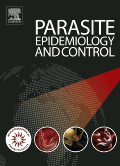
Parasite Epidemiology and Control
Advancing knowledge to combat parasitic threats.Parasite Epidemiology and Control is a premier open-access journal published by Elsevier, dedicated to advancing the understanding of parasites and their impact on public health. Since its inception in 2016, the journal has established itself as a prominent publication in the fields of epidemiology, infectious diseases, and parasitology, achieving a commendable classification of Q2 in these categories as per 2023 metrics. With its ISSN 2405-6731, the journal serves as a vital resource for researchers, practitioners, and students, offering rigorous, peer-reviewed articles that illuminate parasite-related epidemiological trends and control strategies. Based in the United Kingdom, Parasite Epidemiology and Control actively promotes open access, ensuring that crucial research findings are readily accessible to a global audience, thus enhancing collaborative efforts in tackling parasitic diseases. The journal's impact is reflected in its Scopus rankings—ranking 17th in Parasitology among 79 journals, 47th in Epidemiology among 148, and 121st in Infectious Diseases among 344—underlining its significance in the scientific community. Join us in exploring this critical field and contributing to the fight against parasitic diseases through innovative research and shared knowledge.
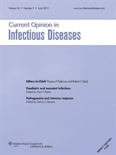
CURRENT OPINION IN INFECTIOUS DISEASES
Fostering Critical Discussions in Infectious Disease TrendsCURRENT OPINION IN INFECTIOUS DISEASES, published by Lippincott Williams & Wilkins, is a premier journal that focuses on the latest developments and understanding in the field of infectious diseases. With its ISSN 0951-7375 and E-ISSN 1473-6527, this journal has gained recognition for its pivotal role in advancing knowledge from 1988 to its current publications in 2024. Boasting an impressive Q1 ranking in both Infectious Diseases and the Medical Microbiology category, it holds a reputable position among the top journals in the field. The journal serves as an essential resource for researchers, professionals, and students alike, providing them with timely reviews, analyses, and perspectives that shape contemporary practice and policy. While lacking open access options, it ensures a critical examination of emerging trends and unique insights that foster informed discussions. With its consistently high impact factor, CURRENT OPINION IN INFECTIOUS DISEASES remains a vital platform for thought leaders and innovators navigating the complexities of infectious disease research.